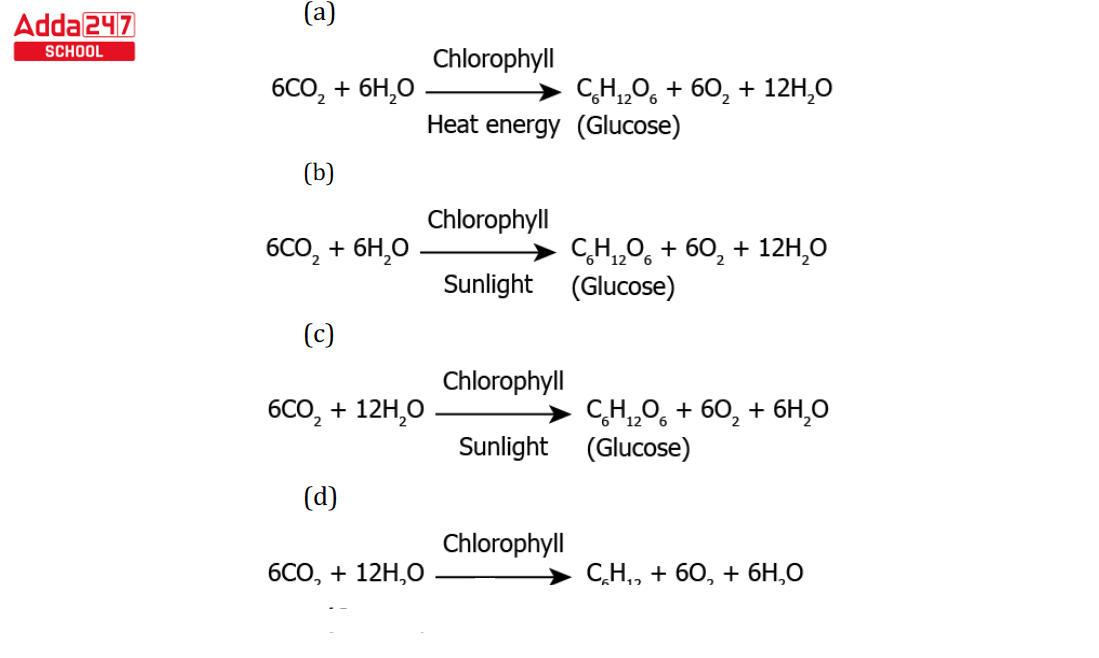Table of Contents
To help the students revise and prepare class 10 science mcq for the Science examination, we have brought a list of curated questions.
These are hand-picked questions which will help the students to give a boost to their last-minute preparations. We all know that it has been hard for the students ever since the declaration was made for the exams by CBSE.
The board exam will be completely based on class 10 science mcq and students will be given OMR Sheets to fill in the answers. Each of the class 10 science mcq given below have their respective answers given. Try to attempt the all question at first by not looking at the solutions.
MCQ Questions for Class 10 Science All Chapters
Science is a subject that is completely based on facts and figures. To score full marks in science, you will have to study each topic in-depth. The MCQ Questions for Class 10 Science All Chapters questions given below are chosen in such a way that from each chapter we have selected the in-depth questions.
Try revising all the questions before you appear for your first term board exams. These are few of the most important class 10 science mcq that will help you to gain the extra marks.
CBSE MCQ Questions for Class 10 Science All Chapters with answers
Let’s have a look at the important class 10 science mcq for CBSE Class 10 Science Important MCQ Questions.
Before burning in air, the magnesium ribbon is cleaned by rubbing with a sand paper to:
Make the ribbon surface shinier
b. Remove the layer of magnesium oxide from the ribbon surface
c. Remove the layer of magnesium carbonate from the ribbon surface
d. Remove the moisture from the ribbon surface
Answer: c. Remove the layer of magnesium carbonate from the ribbon surface.
It is necessary to balance a chemical equation in order to satisfy the law of:
Conservation of motion
b. Conservation of momentum
c. Conservation of energy
d. Conservation of mass
Answer. d. Conservation of mass
The displacement reaction between iron (III) oxide and a metal X is used for welding the rail tracks. Here X is:
Copper granules
b. Magnesium ribbon
c. Sodium pellets
d. Aluminium dust
Answer. d. Aluminium dust
Zinc granules on treating with an acid X, form the zinc sulphate (ZnSO4) salt along with the evolution of a gas Y which burns with a pop sound when brought near to a burning candle. Identify the acid X and gas evolved Y.
X- Sulphuric acid and Y- Oxygen gas
b. X- Hydrochloric acid and Y- Oxygen gas
c. X- Sulphuric acid and Y- Hydrogen gas
d. X- Hydrochloric acid and Y- Hydrogen gas
Answer. c. X- Sulphuric acid and Y- Hydrogen gas
The metal which is liquid at room temperature is
a) Bromine
b) Mercury
c) Iodine
d) Potassium
Answer: (b) Mercury
Which of the following statements about graphite and diamond is true?
a) They have the same crystal structure
b) They have the same degree of hardness
c) They have the same electrical conductivity
d) They can undergo the same chemical reactions
Answer: (d) They can undergo the same chemical reactions
What happens to the electropositive character of elements on moving from left to right in a periodic table?
a) Increase
b) Decreases
c) First increases than decreases
d) First decreases than increases
Answer: (b) Decreases
Explanation: Electropositive character of an element is its ability to lose electrons and form positive ions. Now, as on moving from left to right in a period of periodic table, the nuclear charge increases due to the gradual increase in number of protons, so the valence electrons are pulled more strongly by the nucleus. Thus, it becomes more and more difficult for the atoms to lose electrons causing a decrease in the electropositive character of elements on moving from left to right in a periodic table.
Sometimes we get painful cramps in our leg muscles after running for a long time due to the accumulation of:
a) Hydrochloric acid
b) Fat
c) Carbon dioxide
d) Lactic acid
Answer: (d) Lactic acid
The process of diffusion of solvent particles from the region of less solute concentration to a region of high solute concentration through semi-permeable membrane is known as
a) Diffusion
b) Osmosis
c) Translocation
d) Transpiration
Answer: (b) Osmosis
Explanation: The diffusion of solvent particles from a region of less concentration to high concentration (concentration gradient) through a semi permeable membrane is called osmosis.
Arteries and veins are connected by a network of extremely narrow tubes called:
- a) Sieve tubes
- b) Capillaries
- c) Vena cava
- d) Valves
Answer: (b) Capillaries
Explanation: Blood capillaries are vessels that connect arteries and veins and help in blood circulation.
The growth of tendrils in pea plants is due to the:
(a) Effect of sunlight on the tendril cells facing the sun
(b) Effect of gravity on the part of tendril hanging down towards the earth
(c) Rapid cell division and elongation in tendril cells that are away from the support
(d) Rapid cell division and elongation in tendril cells in contact with the support
Answer. (c) Rapid cell division and elongation in tendril cells that are away from the support
The asexual reproduction in the Spirogyra involves:
(a) Breaking up of filaments into smaller bits
(b) Division of a cell into many cells
(c) Division of a cell into two cells
(d) Formation of a large number of buds
Answer. (b) Division of a cell into many cells
What is the ratio by volume, of hydrogen and oxygen present in water?
(a) 1:2
(b) 1:1
(c) 1:8
(d) 2:1
Answer:(d) 2:1
Which options give the chemical equation to form aluminium chloride from aluminium and chlorine?
(a) 2Al + 3Cl2 → 2AlCl3
(b) 2Al + Cl2 → 2AlCl
(c) Al + Cl2 → AlCl2
(d) 3Al + 3Cl2 → 3AlCl3
Answer:(a) 2Al + 3Cl2 → 2AlCl3
What is the chemical formula of magnesium oxide?
(a) Mg2O
(b) MgO2
(c) Mg(OH)2
(d) MgO
Answer:(d) MgO
Black and white photography uses:
(a) Displacement reaction
(b) Oxidation reaction
(c) Combination Reaction
(d) Decomposition Reaction
Answer: (d) Decomposition Reaction
An example of an oxidation reaction is:
(a) Gain of hydrogen
(b) Loss of oxygen
(c) Gain of oxygen
(d) None of the above
Answer:(c) Gain of oxygen
Which one is an example of a chemical reaction?
(a) Formation of curd
(b) Breakdown of food
(c) Fermented Grapes
(d) All of the above
Answer:(d) All of the above
What Acid does a Tomato have?
(a) Citric Acid
(b) Oxalic Acid
(c) Lactic Acid
(d) HCl
Answer:(b) Oxalic Acid
______ does not contain water of crystallization?
(a) Blue vitriol
(b) Gypsum
(c) Baking soda
(d) Washing soda
Answer:(c) Baking soda
The chemical formula of POP:
(a) CaCO3.1/2H2
(b) CaSO4.2H2O
(c) CaSO4.3H2O
(d) CaSO4.1/2H2O
Answer:(d) CaSO4.1/2H2O
Which one of these is Acidic in nature?
(a) CH3COONH4
(b) NH4Cl
(c) NaCl
(d)Na2CO3
Answer:(b) NH4Cl
The acid found in Tamarind is:
(a) Oxalic Acid
(b) Tartaric acid
(c) Citric Acid
(d) Lactic Acid
Answer:(b) Tartaric acid
Which non-metal is used to preserve food or food material?
(a) Carbon
(b) Phosphorus
(c) Nitrogen
(d) Sulphur
Answer: (c) Nitrogen
Which of the iron oxides would result from a long-term reaction of iron with steam?
(a) FeO
(b) Fe2O3
(c) Fe3O4
(d) Fe2O3 and Fe3O4
Answer:(c) Fe3O4
What products are formed when calcium oxide is added to water and it completely dissolves in it without forming bubbles?
(a) Ca and H2
(b) Ca and H2O2
(c) Ca(OH)2
(d) CaH2
Answer:(c) Ca(OH)2
What does freezing of Vinegar, a diluted form of ethanoic acid, during winter, suggest about the physical properties of pure ethanoic acid?
(a) A very high boiling point
(b) A low boiling point
(c) A low melting point
(d) A very high melting point
Answer:(c) A low melting point
The molecular formula of cyclobutane is:
(a) C4H10
(b) C4H6
(c) C4H8
(d) C4H4
Answer:(c) C4H8
Methane, ethane and propane are:
(a) Hydrocarbons
(b) saturated compounds
(c) aliphatic compounds
(d) differ from each other by a CH2 group
Answer:(d) differ from each other by a CH2 group
A homologous series of alkyne:
(a) C6H6
(b) C2H6
(c) C2H4
(d) C3H4
Answer:(d) C3H4
The basis of the modern periodic table is:
(a) Atomic mass
(b) Number of nucleons
(c) Atomic number
(d) All of these
Answer:(c) Atomic number
The most reactive element of group 17 is:
(a) Oxygen
(b) Sodium
(c) Fluorine
(d) Magnesium
Answer:(c) Fluorine
The correct order of the atomic radii of the elements oxygen, fluorine and nitrogen:
(a) O < F < N
(b) N < F < O
(c) O < N < F
(d) F < O < N
Answer: (d) F < O < N
Element X makes the XCl2 chloride, that is a solid with a high melting point. X would most likely belong to the same Periodic Table group as:
a) Na
b) Mg
c) Al
d) Si
Answer: b) Mg
When moving from left to right in a periodic table, what effects is observed in the electropositive character of elements?
(a) Increase
(b) Decreases
(c) First increases then decreases
(d) First decreases then increases
Answer:(b) Decreases
What are the group 18th elements called?
(a) Noble gases
(b) Alkali metals
(c) Alkali earth metals
(d) Halogens
Answer:(a) Noble gases
Transition metals lie under which group?
(a) Group number 1 to 2
(b) Group number 1 to 8
(c) Group number 3 to 12
(d) Group number 13 to 18
Answer:(c) Group number 3 to 12
From where does amoeba digest its food?
(a) food vacuole
(b) mitochondria
(c) pseudopodia
(d) chloroplast
Answer: (a) food vacuole
Food materials are broken down outside the body and absorbed in:
(a) Mushroom, green plants, Amoeba
(b) Yeast, mushroom, bread mould
(c) Paramecium, Amoeba, Cuscuta
(d) Cuscuta, lice, tapeworm
Answer:(b) Yeast, mushroom, bread mould
What is the movement of contraction and expansion of the walls of the food pipe called?
(a) translocation
(b) transpiration
(c) peristaltic movement
(d) digestion
Answer:(c) peristaltic movement
Products obtained by anaerobic respiration in plants is called:
(a) Pyruvate
(b) Carbon dioxide + Water + Energy
(c) Ethanol + Carbon dioxide + Energy
(d) Lactic acid + Energy
Answer:(c) Ethanol + Carbon dioxide + Energy
The rice water solution turns blue- black in colour when a few drops of iodine solution are added to it; thus, rice water contains:
(a) fats
(b) complex proteins
(c) starch
(d) simple proteins
Answer:(c) starch
What are the decomposers?
(a) The organisms that convert organic material to inorganic forms
(b) The organisms that convert inorganic material to simpler forms
(c) The organisms that convert inorganic material into organic compound
(d) The organisms that do not break down organic compound
Answer:(a) The organisms that convert organic material to inorganic forms
What is the percentage of the energy that flows from one trophic level to another in a food chain?
(a) 5%
(b) 10 %
(c) 20 %
(d) 15 %
Answer:(b) 10 %
How does Chlorofluorocarbons free refrigerators help prevent ozone depletion?
(a) To help convert oxygen molecules into ozone
(b) To help convert the CFCs into ozone molecules
(c) To reduce the production of CFC from oxygen molecules
(d) To help reduce the release of CFCs that reacts with ozone molecules
Answer:(d) To help reduce the release of CFCs that reacts with ozone molecules



 Bihar Board 12th Result 2025 Out @ inter...
Bihar Board 12th Result 2025 Out @ inter...
 JEE Mains 2025 Session 2 Admit Card Out,...
JEE Mains 2025 Session 2 Admit Card Out,...
 Join ONE-Pro-Max - MAHAPACK for NEET-UG ...
Join ONE-Pro-Max - MAHAPACK for NEET-UG ...

